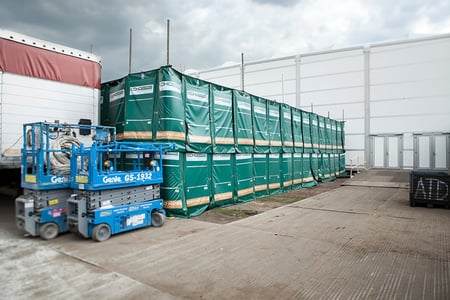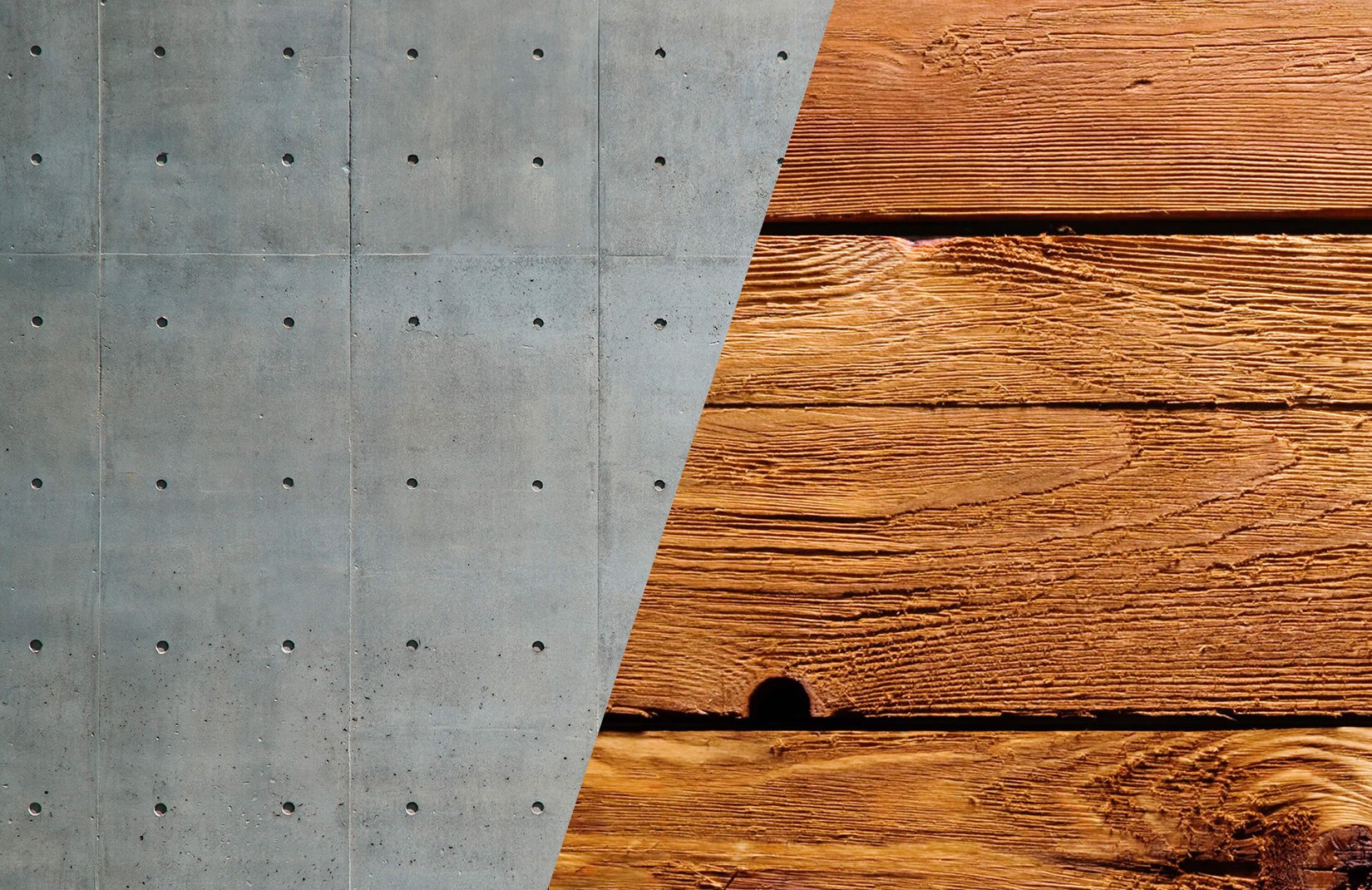
Choosing the right material for a noise barrier is harder than it may seem. There are a number of considerations beyond "does it eliminate noise?" that may not be obvious. For example, some materials absorb sound while some simply reflect it, often worsening the issue. Some materials are easy to work with while some require careful craftsmanship to use effectively.
Going into great detail about the science behind noise barriers would take all day, but you don't need to know everything in order to get a general idea of how various materials work. Here are some facts about a few of the most effective noise barrier materials.
Concrete
Concrete is one of the most common construction materials. In fact, almost half of all noise barriers constructed in America are made of concrete. It's not necessarily the best of the best when it comes to noise reduction, but it makes up for this by being versatile. It's also very hardy, making it a good choice when installing noise barriers in areas where construction is difficult.
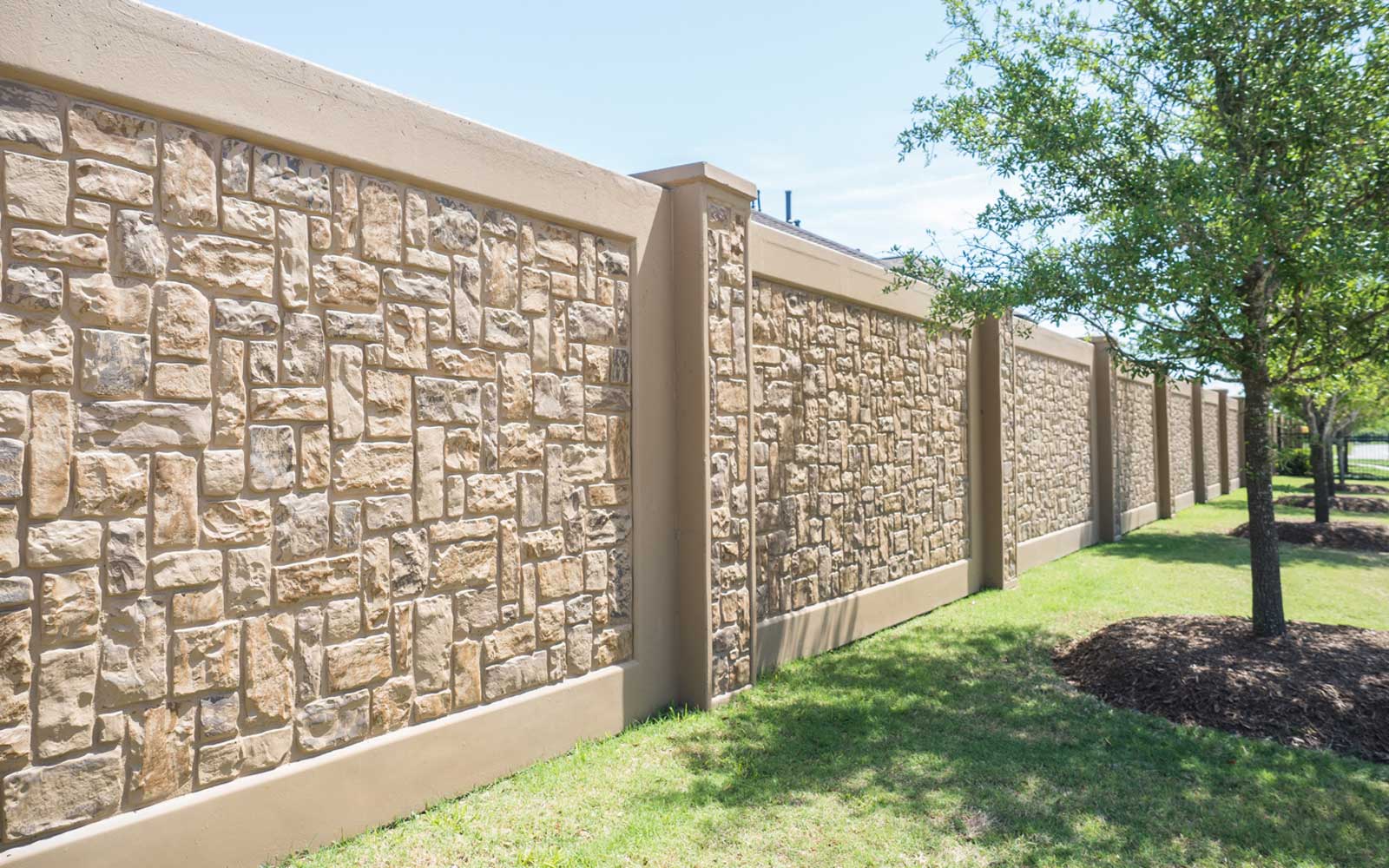
Steel
Metals such as steel and aluminum are also commonly used in the construction of noise barriers. Steel, in particular, is cheap, effective, and easy to work with. One consideration is that steel — along with most other metals — reflects sound instead of absorbing it. This makes steel barriers a poor choice for use in highly populated areas.
Acrylic
Acrylic is commonly used to construct transparent noise barrier panels. These are useful in areas where you want to eliminate noise without reducing visibility. As an example, you might use acrylic panels in areas with scenic views or along highways with a lot of retail establishments. The downside is that acrylic transparent panels are considerably more expensive than other materials.
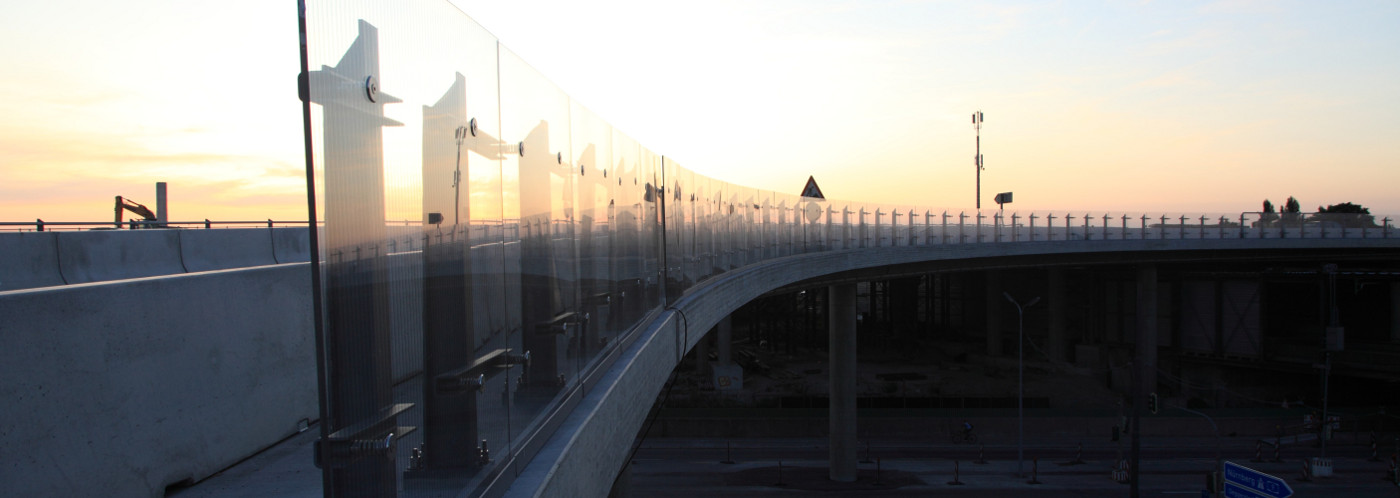
Wood
Pressure treated wood is actually quite effective as a noise barrier. And it's cheap and easy to transport — which is great on a constrained budget. It also blends in quite nicely in residential areas, unlike concrete, acrylic, and steel.
The downside of using wood is that it has a more limited lifespan than other types of materials. Sometimes this is ideal, like in cases where you need a temporary barrier that will need to be moved or deconstructed quickly. For barriers that are meant to last, however, wood isn't the best choice.
PVC Composite
Fixed sound barriers are useful as a long-term noise mitigation, and some can withstand harsh climate conditions for decades. However, when shorter term noise abatement is necessary, implementing an entire sound wall out of such materials is simply unviable.
Under these circumstances, portable acoustic barriers are far more efficient and cost-effective. Acoustic barriers like Echo Barrier are able to achieve noise reduction figures comparable with some fixed barrier alternatives, while still being highly resistant to the elements.
Read: A Guide To Correct Use Of Echo Barriers
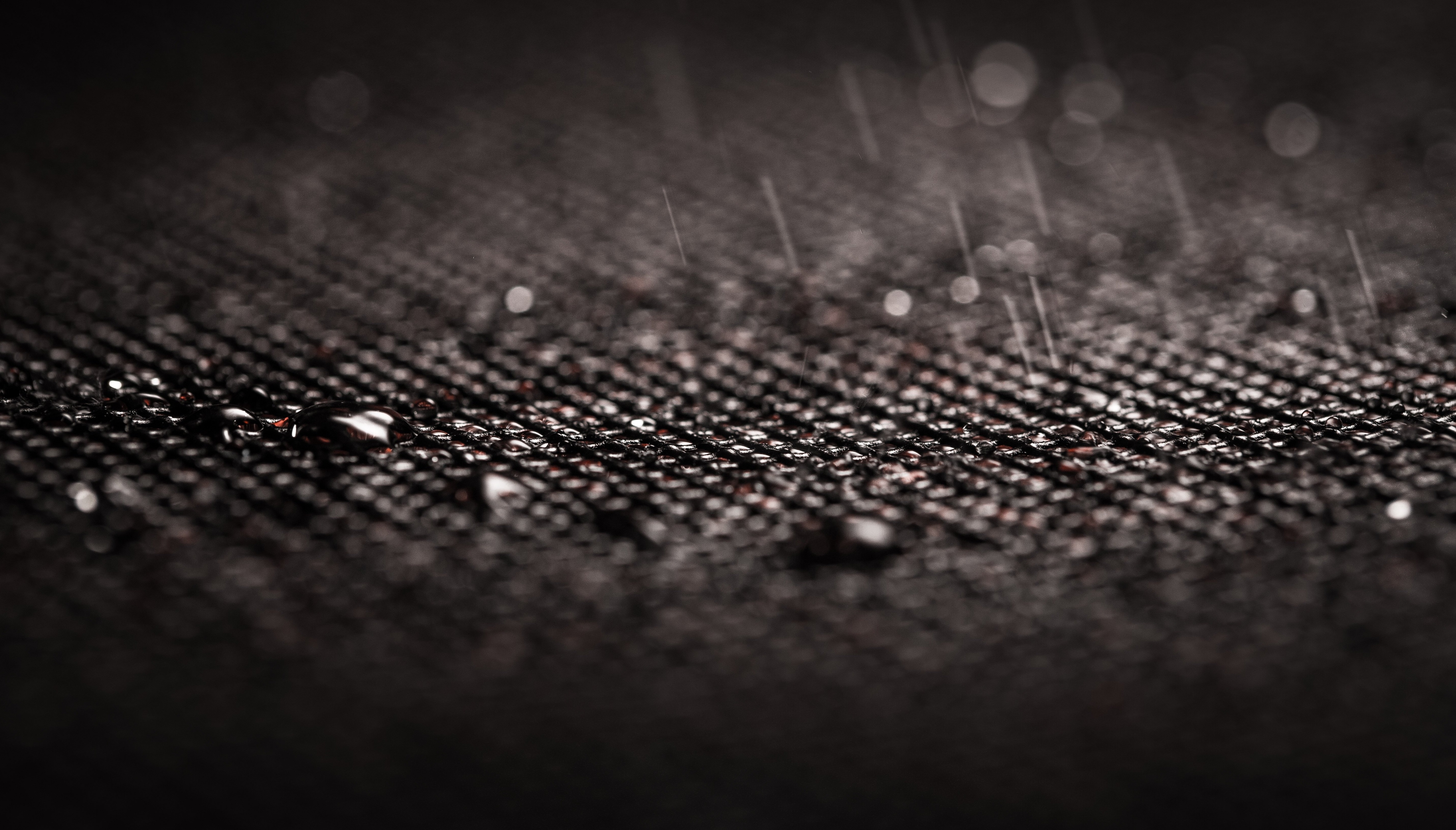
Portable sound barriers
Echo Barrier is an innovative temporary noise control system designed to quickly mitigate noise in dynamic and sensitive work environments. Distribution available worldwide – get in touch with us:

